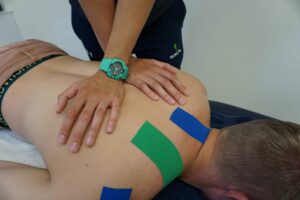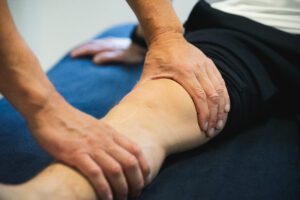What does dizziness feel like?
Dizziness can cause a variety of feelings depending on the cause. Dizziness may be accompanied by the feeling that everything is spinning or that you are moving in circles. Dizziness can also mean a feeling of loss of balance or a tendency to fall. Dizziness may also be accompanied by headache, nausea, sweating and drowsiness. Dizziness can also cause a feeling of weakness, confusion and anxiety.
What are the causes of dizziness?
Dizziness can be caused by a variety of causes, including depression, fatigue, stress, alcohol consumption and certain medications. Dizziness can also be caused by a condition such as Meniere's syndrome, labyrinthitis, or vestibular neuritis. It can also be a symptom of other medical conditions, such as heart problems, diabetes or high blood pressure.
What are the consequences of dizziness?
Dizziness can have serious consequences for a person's health and well-being. Dizziness can lead to accidents due to falls, exhaustion or other injuries. Dizziness and vertigo can also lead to fatigue, memory problems, anxiety and depression. Dizziness can also limit daily life, such as driving or working.
In severe cases, dizziness can lead to disability. It is therefore important to treat dizziness and keep it under control.
How can dizziness be treated?
If someone experiences dizziness on a regular basis, this can be treated with different types of therapies and medications. Treatment for dizziness may include:
- Adjusting lifestyle factors such as alcohol consumption, reducing stress and limiting caffeine;
- Dizziness can also be treated with medications, such as anticholinergic medications, antihistamines, or beta blockers;
- Dizziness can also be treated with physical therapy, such as balance exercises or exercises to strengthen the neck and shoulder musculature;
- Psychological therapies such as cognitive behavioral therapy or exercise therapy.
If you are experiencing a lot of dizziness yourself, always seek the help of a doctor to determine the correct diagnosis and treatment.
Tips for dizziness
Treatment for dizziness can take different forms depending on the cause. But there are several general tips you can follow to reduce dizziness, such as:
- Get rest: Dizziness can become more intense when you are tired, so rest is essential to reduce dizziness.
- Avoid stress: Stress and anxiety can cause or worsen dizziness. Take time to relax and seek help if you are concerned that dizziness is affecting your life.
- Good nutrition: Eat healthy foods such as vegetables, fruits, whole grains and nuts to reduce dizziness.
- Avoid alcohol: Alcohol can make dizziness worse, so it is better to avoid it or at least drink it in moderation.
- Stay active: Exercise reduces dizziness, but rest if you experience dizziness. Avoid sudden movements that can worsen dizziness.
- Clothing: Wear comfortable clothes. Choose clothing that is not too tight, as this can block your circulation.
- Avoid stimuli: Avoid smells or sounds that can make you dizzy.
- Focus: Try to focus your eyes on a fixed spot to help your vestibular system.
- Exercises: Do exercises that help your balance organ, such as walking with your eyes closed or standing on one leg.
It is important to have dizziness checked if the symptoms persist for a long time and do not improve with the above tips.










